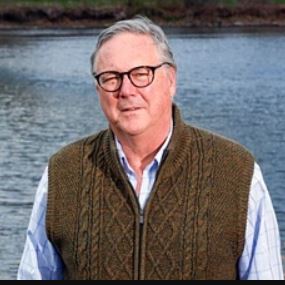One of the major issues with water pollution in Iowa occurred back in the 1970’s in Des Moines when high levels of nitrate were found in their water systems. Jones explained, “…So soybeans came in in the 60’s and displaced other crops… and so when soybeans came in, that intensified the production system and that also brought in commercial fertilizer, and so in the 70’s, the Safe Drinking Water Act was passed by Congress and signed by President Nixon in 1974 and nitrate was one of the original regulating parameters, and nitrate gets into the water from fertilizers being applied to corn primarily, and so in the mid-70’s Water Works saw that nitrate levels were increasing and sort of knew they had a problem then, but kind of had hoped it might go away, but it didn’t. During the 80’s, they violated the standard for nitrate multiple times and then had seen a consent decree from EPA and Iowa DNR that they had to construct nitrate removal treatment there… and they did that and they began removing nitrate in 1992… more than a generation ago we’ve had this problem in Des Moines and it’s still not resolved.” Since then, two new treatment plants have been constructed and development of shallow wells have helped to reduced the amount of of nitrate found in the river waters.
While the topics within the book may seem intricate and complex, most readers will find The Swine Republic not only educational, but quite entertaining, and the information told in a way that is easy to understand. Jones remarked, “That’s one of the issues that I think we have with solving this problem is that there’s a lot of complexity here, the confluence of politics and culture and science and economics and all that stuff… all of those are dense topics for most people, then you combine them all, then it becomes really intimidating to try to learn and so if we’re going to solve this, general audiences have to be engaged and to engage general audiences you’ve got to speak to them in a way that they’re going to enjoy being spoken to… I deliberately did try to write in ways that general audiences will enjoy.”

Problem isn’t that farmers are evil. The problem is they’re human beings and so they’re making decisions that many of us would make if we were presented with the same set of circumstances. What that means is we need policy change.”


We never know the worth of water till the well is dry.”

Podcast: Play in new window | Download
Subscribe: RSS

Want to join the discussion?
Feel free to contribute!